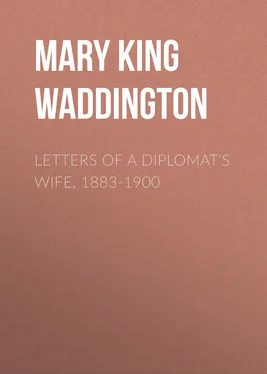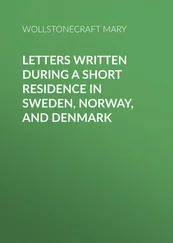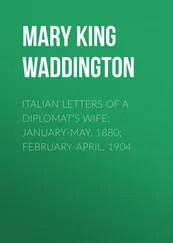Mary Waddington - Letters of a Diplomat's Wife, 1883-1900
Здесь есть возможность читать онлайн «Mary Waddington - Letters of a Diplomat's Wife, 1883-1900» — ознакомительный отрывок электронной книги совершенно бесплатно, а после прочтения отрывка купить полную версию. В некоторых случаях можно слушать аудио, скачать через торрент в формате fb2 и присутствует краткое содержание. Издательство: Иностранный паблик, Жанр: Биографии и Мемуары, История, foreign_edu, foreign_antique, foreign_prose, на английском языке. Описание произведения, (предисловие) а так же отзывы посетителей доступны на портале библиотеки ЛибКат.
- Название:Letters of a Diplomat's Wife, 1883-1900
- Автор:
- Издательство:Иностранный паблик
- Жанр:
- Год:неизвестен
- ISBN:нет данных
- Рейтинг книги:3 / 5. Голосов: 1
-
Избранное:Добавить в избранное
- Отзывы:
-
Ваша оценка:
- 60
- 1
- 2
- 3
- 4
- 5
Letters of a Diplomat's Wife, 1883-1900: краткое содержание, описание и аннотация
Предлагаем к чтению аннотацию, описание, краткое содержание или предисловие (зависит от того, что написал сам автор книги «Letters of a Diplomat's Wife, 1883-1900»). Если вы не нашли необходимую информацию о книге — напишите в комментариях, мы постараемся отыскать её.
Letters of a Diplomat's Wife, 1883-1900 — читать онлайн ознакомительный отрывок
Ниже представлен текст книги, разбитый по страницам. Система сохранения места последней прочитанной страницы, позволяет с удобством читать онлайн бесплатно книгу «Letters of a Diplomat's Wife, 1883-1900», без необходимости каждый раз заново искать на чём Вы остановились. Поставьте закладку, и сможете в любой момент перейти на страницу, на которой закончили чтение.
Интервал:
Закладка:
Mary King Waddington
Letters of a Diplomat's Wife, 1883-1900
INTRODUCTORY NOTE
Mary Alsop King Waddington is a daughter of the late Charles King, President of Columbia College in the City of New York from 1849 to 1864, and a granddaughter of Rufus King, the second Minister sent to England by the United States after the adoption of the Constitution.
Miss King was educated in this country. In 1871, after the death of her father, she went, with her mother and sisters, to live in France, and in 1874 became the wife of M. William Henry Waddington.
M. Waddington was born in Normandy, France, in 1826. His grandfather was an Englishman who had established cotton manufactories in France, and had become a naturalised French citizen. The grandson, however, was educated first in a Paris lycée , then at Rugby, and later at Trinity College, Cambridge. As an undergraduate he rowed in the Cambridge boat in the University race of 1849. Soon after leaving the University, M. Waddington returned to France and entered public life. In 1871 he was elected a representative from the Department of the Aisne to the National Assembly, and two years afterward was appointed Minister of Public Instruction in place of M. Jules Simon. In January, 1876, he was elected a senator for the Department of the Aisne, and two months later again became Minister of Public Instruction. In December, 1877, he accepted the portfolio of Minister of Foreign Affairs.
M. Waddington was the first plenipotentiary of France to the Congress of Berlin in 1878. On February 4, 1879, he became President of the Council (Premier), retiring the following December. In the winter of 1879-1880 he refused the offer of the London Embassy. In May, 1883, he was sent as Ambassador-Extraordinary to represent France at the coronation of the Czar Alexander III at Moscow, and upon his return from Russia was appointed Ambassador at the Court of St. James to succeed M. Tissot. He held this post until 1893, and died in Paris in the following year.
Mme. Waddington accompanied her husband on his missions to both England and Russia. The letters collected in this volume were written during the period of her husband's diplomatic service to describe to her sisters the personages and incidents of her official life. About a fourth part of their number have lately been published in Scribner's Magazine ; with this exception, the letters are now given to the public for the first time.
Tompkins McIlvaine.New York, April 1, 1903.
PART I
THE CORONATION OF THE CZAR
To G. K. S
Our breakfast at the English Embassy was most interesting. I began by refusing on account of my mourning, but Lord Lyons wrote me a nice note saying that there would be no one but the Léon Says and Mr. and Mrs. Gladstone, so I accepted. I was very anxious to see Mr. Gladstone.
We had a pretty little breakfast upstairs in the small dining-room, and the talk at table was most interesting. I thought Mrs. Gladstone looked older than her husband. He of course did most of the talking. He has a fine voice, bright, keen, dark eyes, holds himself very erect, and apparently knows everything about everything. When the men were smoking after breakfast I had quite a talk with Mrs. Gladstone, who told me about the murder of Lord Frederick Cavendish. She said her husband heard it at a big London party, and had to go and tell Lady Frederick. Mr. Gladstone was more upset by the whole thing (and the having to tell the unfortunate wife) than she had ever seen him. Il y avait de quoi, for even here in Paris, where outside questions don't trouble them very much, there was great excitement when the news came.
I had a nice talk with Plunkett, who congratulated me on W.'s 1 1 A: W. here and throughout these letters refers to Mme. Waddington's husband, M. William Henry Waddington, "G. K. S.," "H. L. K.," "A. J. K." and "J. K.," to whom the letters are addressed, refer to Mme. Waddington's sisters, Mrs. Eugene Schuyler, Miss Henrietta L. King, and the late Miss Anne J. King, and to her sister-in-law, the late Mrs. Cornelius L. King.
appointment as Ambassador to Vienna. I told him there was no truth in the report (they had offered it to W., but he won't hear of it), and I think he is quite right. He has no particular attaches at Vienna. He knows German well, but doesn't speak it absolutely perfectly, and hasn't really the social talents that one needs in Vienna. They ought to send a dashing general, or a courtier, not a serious savant.
We certainly are leading different lives. I am wrapped in my fur coat, and driving in a shut carriage. Your tea in the garden sends a shiver through me. It sounds quite romantic having the son of the "Roi des Montagnes" to breakfast. I wonder if I shall ever see Athens; W. says when I do that I will never care again for Rome; that colouring and ruins are far superior in Greece. I almost think in that case I would rather remain under my present impression of dear, beautiful Rome, not quite like our American friend, who thought "the Colosseum was pretty, but she liked the Court-House at St. Louis better."
Paris, Sunday, March 18, 1883.I will write a little this morning, Dear—I am just back from l'Étoile. I have had rather an agitated week, and here is my news, good—bad—I don't know myself. W. is going as Ambassador Extraordinary to Moscow to represent France at the Coronation of the Emperor Alexander. It was a "bolt from the blue" to us. I will tell you from the beginning. We went to ride as usual Thursday morning, but rather earlier than usual (9.30). When we came home Mdme. Hubert told us we hadn't been gone ten minutes, when le Ministre des Affaires Étrangères (Challemel-Lacour) came to see W., was much discomposed at not finding him, and told Mdme. H. he would come back at 11. He didn't reappear, but one of the young attachés did, with a note from Challemel begging W. to come and see him directly after breakfast. We couldn't think what he wanted, but we both made up our minds it was to insist on the Vienna Embassy. I protested, and I think W. would not have taken it.
I went out in the afternoon with Anne to try on a dress at Redfern's, and just as we were coming away W. appeared. He had seen the carriage at the door and knew he would find us. He looked rather preoccupied, so I said, "You are not surely going to Vienna?"
"No, not to Vienna, probably to Russia, for the Coronation."
I was too bewildered at first to take it in, and I must frankly say I was wretched. Of course he asked 24 hours to think it over, though the Minister urged him very much to accept at once. Challemel also wishes me to go, says a woman gives more éclat to an Embassy. Of course it will be a magnificent sight, but I am a perfect poltroon—I am so afraid they will take advantage of that crowd to blow up everybody. However, if that should happen it would be better to be blown up together, but I really am nervous (I am not usually such a coward, but Russian Nihilists and dynamiters are terrible elements to contend with), and wish they hadn't asked him to go.
Of course it is a great honour and compliment to W.'s personal position, and I have given no opinion, but I don't feel happy at all. I have always said that I would never try to influence my husband's actions (public) in any way, and I suppose I have kept to that as well as most women do who marry public men, but I should like to put a decided veto now. I will keep you au courant of the decision.
March 20th.Well, Dear, it is quite decided. W. accepts to go to Moscow, and takes me with him. He consulted his brother and his friends and all told him he could not refuse. As long as they didn't send a soldier (W. himself would have asked Maréchal MacMahon to go, if he had been at the Foreign Office), he was "tout indiqué." 2 2 After the Berlin Congress and the Foreign Office.
It seems all the other Powers are going to send Princes—Spain, the Duc de Montpensier; England, the Duke of Edinburgh; Italy, the Duc d'Aoste, etc.
Интервал:
Закладка:
Похожие книги на «Letters of a Diplomat's Wife, 1883-1900»
Представляем Вашему вниманию похожие книги на «Letters of a Diplomat's Wife, 1883-1900» списком для выбора. Мы отобрали схожую по названию и смыслу литературу в надежде предоставить читателям больше вариантов отыскать новые, интересные, ещё непрочитанные произведения.
Обсуждение, отзывы о книге «Letters of a Diplomat's Wife, 1883-1900» и просто собственные мнения читателей. Оставьте ваши комментарии, напишите, что Вы думаете о произведении, его смысле или главных героях. Укажите что конкретно понравилось, а что нет, и почему Вы так считаете.












